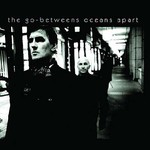Oceans Apart
Studio Album by The Go-Betweens released in 2005Here Comes a City | |
Finding You | |
Born to a Family | |
No Reason to Cry | |
Boundary Rider | |
Darlinghurst Nights | |
Lavender | |
The Statue | |
This Night's for You | |
The Mountains Near Dellray |
Oceans Apart review
When it comes to pop, it’s not breaking-up that’s hard to do, as any study of bands built around an ego-flapping frontman and a shaggy-fringed guitarist will reveal. Even making-up - as The Tears and other acts far less cherishable than the Go-Betweens have demonstrated - isn’t much of a stretch. But growing-up, and having something fearless and wise to say about it, is as rare as hen’s teeth. Then again, “rare” has always been an apt word for the band Robert Forster and Grant McLennan have co-fronted since 1981, give or take a hiatus in the 90s. Rare, warm, literate, and - in the case of their ninth studio album no less than their classic works of the Eighties – gratifyingly lovely. Oceans Apart finds dual front men (ably backed by the rhythm section of drummer Glenn Thompson and bassist/keyboardist Adele Pickvance, in addition, there is a small wind and brass section on some tracks, and, for a change, no strings) exploring everything from the distance between London (where the bulk of the album was recorded) and the Australian band’s home base of Brisbane to the beauty and solitude of Tasmanian geography.
Oceans Apart is the album that fans have been waiting for, the one that brings back the flawless production of their early releases and the cynical/idealistic tradeoff in Forster and McLennan’s songwriting. Between the two of them, Forster seems more apt to focus his attention on his lyrics, worrying less about writing a clever melody than simply charging ahead with the song. Here Comes a City is a literate railway travelogue that manages to work the line “and the people who read Dostoyevsky, look like Dostoyevsky” into its up-tempo verses. McLennan writes the tracks with elaborate breaks and choruses, and if his willingness to reach for the big brass ring makes the quality of his songs a little more erratic – Finding You is probably too sentimental for most people’s taste, as he’s literally talking about the song, qua representation of its author, finding a lost loved one – it also gives them more upside. Boundary Rider is a pastoral meditation just like Before Hollywood’s classic Cattle and Cane, and probably its equal. Forster’s Mountains Near Dellray is a nice inversion of this dynamic, though: it’s his chance to write a poignant radio-ready pop hit. The air of two songwriters on rare form, confidently challenging each other to greater heights, is inescapable.
Now in the sixth year of a comeback that's found them polishing the elusive, delicately rocking romanticism of their Eighties masterworks, Australia's answer to R.E.M. are on a roll. Given the current climate, Oceans Apart sounds strangely reassuring. It's proof that a band can reform for reasons other than nostalgia and financial pragmatism, with a maturity that can enhance rather than damage an artist's legacy. More importantly, it is also a Go-Betweens album that stands with their 1980s highpoints, as good as Tallulah or 1985's Liberty Belle and the Black Diamond Express. With its imagination, startling creativity, and sheer pop soul, Oceans Apart is the first great Go-Betweens' record of the 21st century. The quintessential much-loved cult band, they’ve yet to make an album their fans didn’t adore, but the good news is that Oceans Apart is one of their finest.

